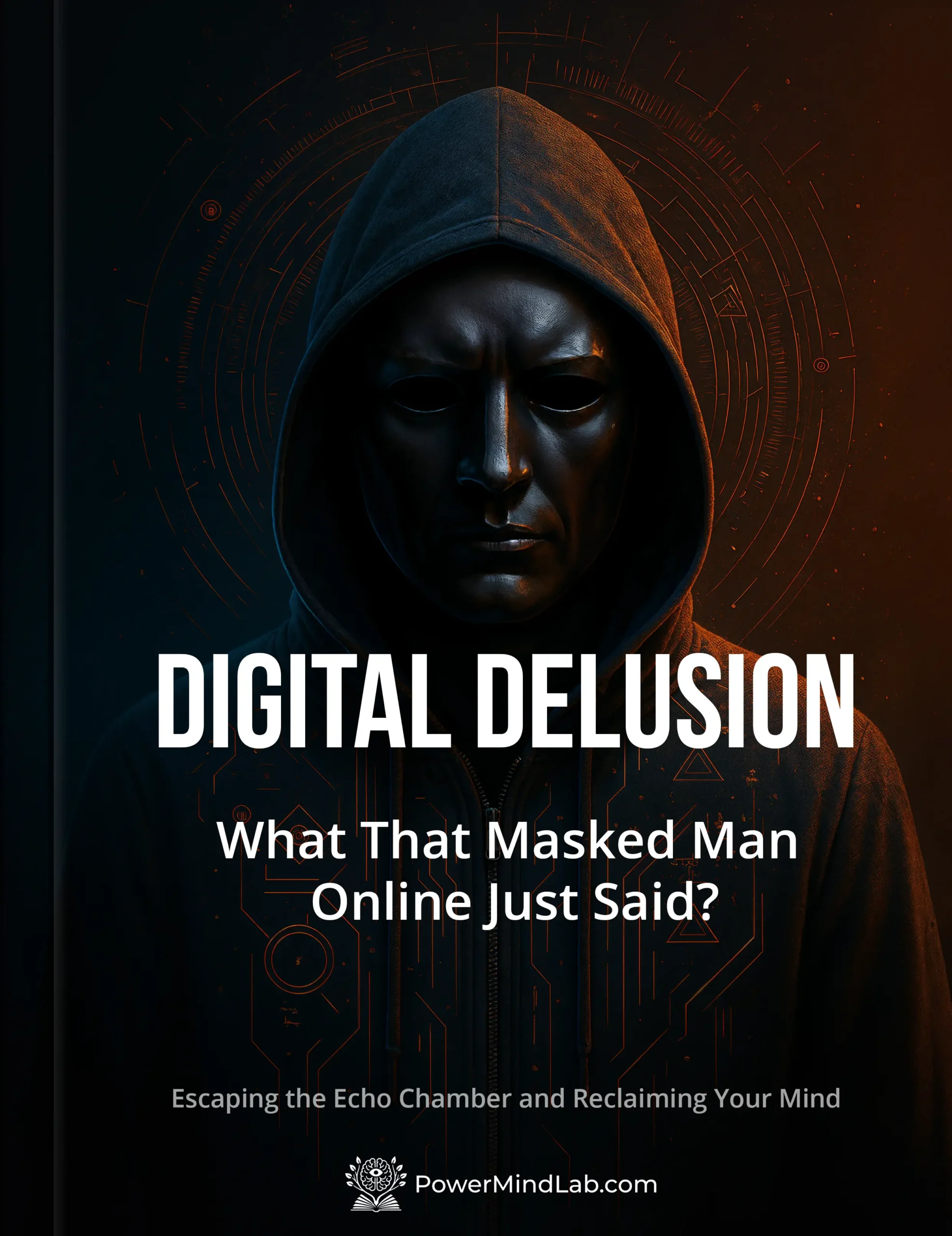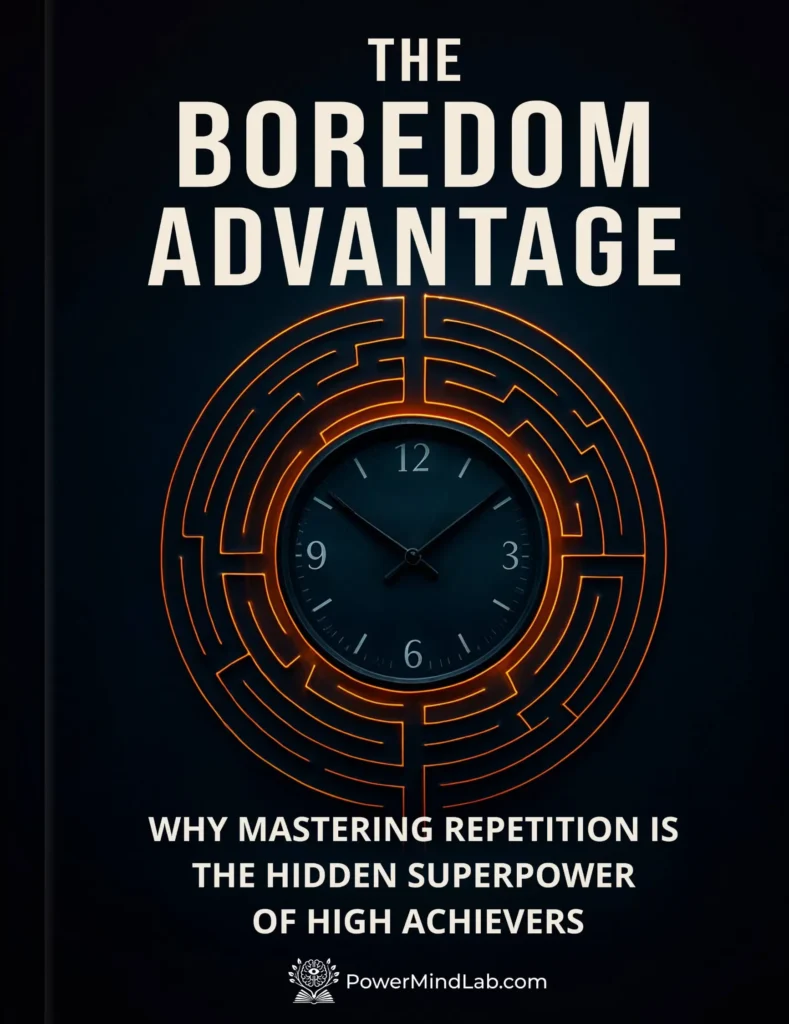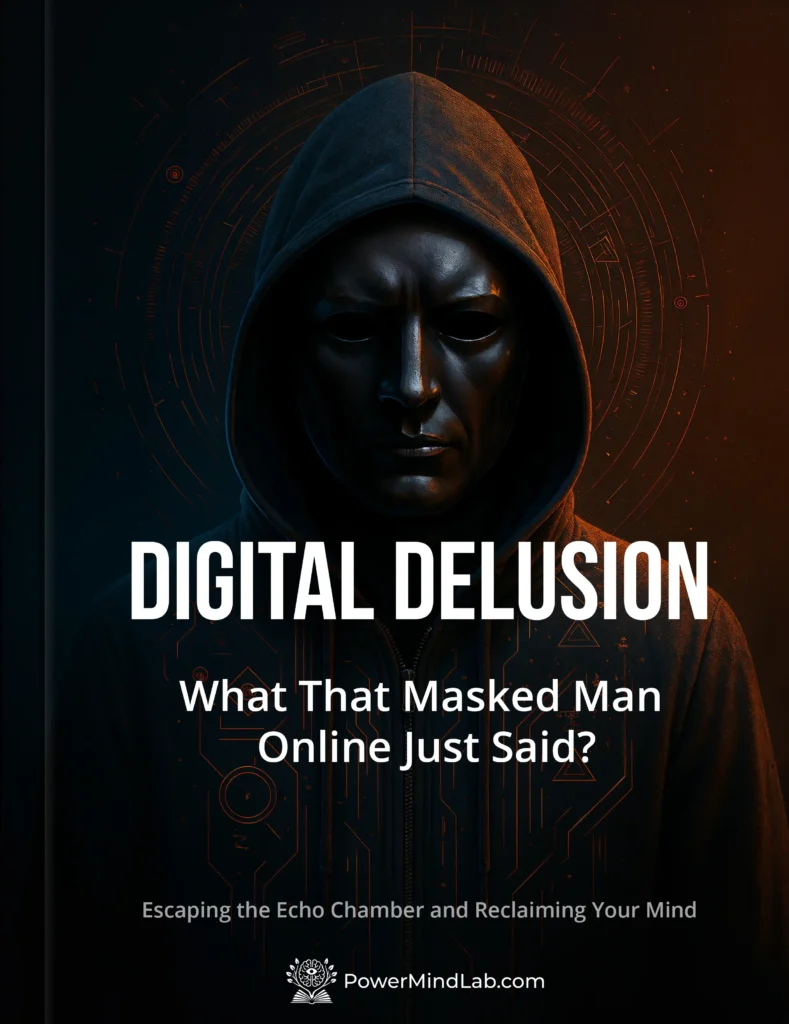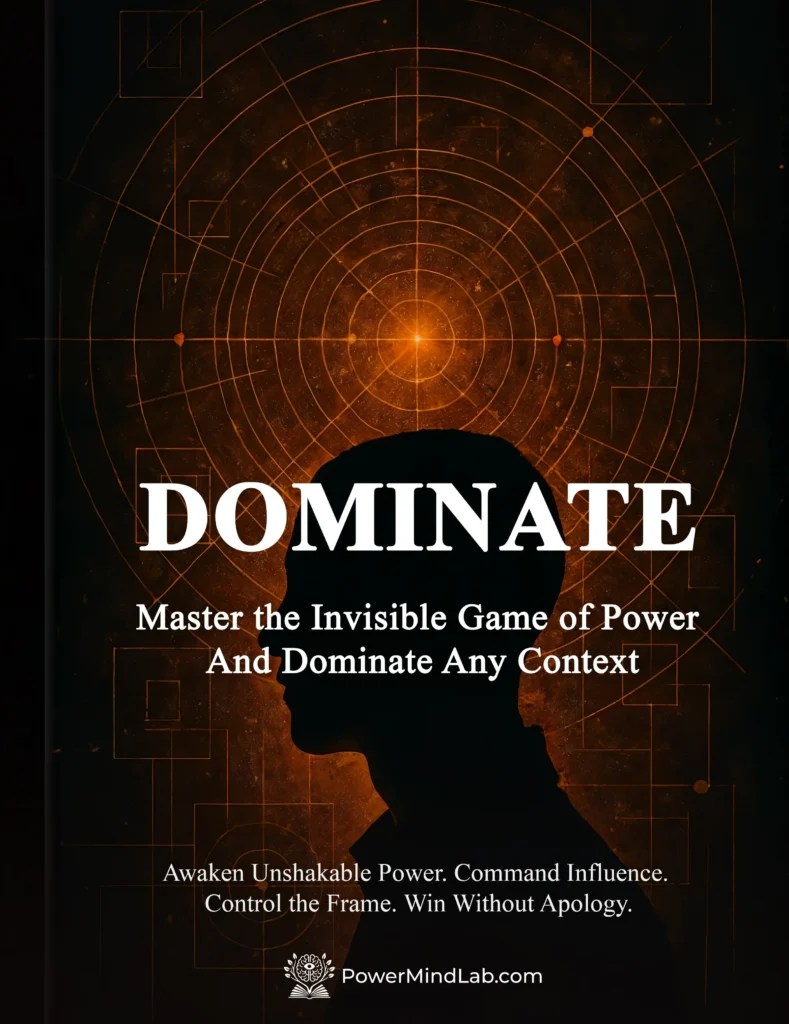
Digital Delusion
What That Masked Man Online Just Said? - Escaping the Echo Chamber and Reclaiming Your Mind
- Genre: Applied Psychology, Personal Transformation, Social Science
- Formats: EPUB, PDF + AudioBook
- Print length: 76 pages
- Language: ENG
- Full file size: 23.09 MB
Book only
Includes:
eBook (EPUB + PDF)
Book + Audiobook
Includes:
- eBook (EPUB + PDF)
- Audiobook (MP3)
- Read Anytime
- Instant Download
- Great on Every Device
- 14-Day Support Guarantee
- Instant Download
- Read Anytime
- Great on Every Device
- 14-Day Support Guarantee
Synopsis
You’re not broken. You’re just being manipulated.
Motivational content floods your feed-bold voices, perfect lives, endless promises. But after the scroll ends, nothing sticks. The fire fades. The shame returns. And you’re left wondering: Why can’t I follow through?
Digital Delusion exposes the hidden psychology behind why “inspiring” content often paralyzes instead of empowers. This book is your escape route from the digital echo chamber-and a guide to rebuilding your attention, identity, and drive in the real world.
Through neuroscience, psychology, and soul-level clarity, you’ll learn how to stop performing for algorithms and start designing a life so real, you no longer need to scroll to feel alive.
This isn’t hype. It’s your turning point.
Look Inside
INTRODUCTION
They told you to hustle harder. They said success is just one more grind away. But deep down, something doesn’t feel r…
INTRODUCTION
They told you to hustle harder. They said success is just one more grind away. But deep down, something doesn’t feel right
You’ve seen him. The polished man in a rented Lamborghini. The wellness coach promising peace through fifteen-second reels. The gritty alpha shouting at you to “man up.” These digital mentors are everywhere – slick, loud, and convincing.
But after the scroll stops and your screen goes dark, what’s really changed? For most of us…nothing.
The motivation fades. The gym routine gets skipped. The business idea dies in your notes app. And worst of all, you’re left with the nagging feeling that you’re somehow broken – that maybe you’re just not trying hard enough.
But what if the problem isn’t you at all?
The Online Mirage: Why You Feel More Confused After Being “Inspired”
This book isn’t a hit piece on motivational content – it’s a deep, piercing exploration of why it feels so damn empty sometimes.
We’ll dive into the psychology of consumption: how content that claims to empower often ends up pacifying. How the brain rewards quick fixes over deep transformation. How we’re biologically wired to chase dopamine, not discipline.
And more importantly – how to break free.
Because while the digital world floods your brain with noise, true clarity is still possible. And it often starts in the quiet, analog act of reading something with depth. Of thinking, instead of reacting. Of building a system inside yourself instead of borrowing scripts from influencers.
This Book Is Your Wake-Up Call and Your Way Out
In these pages, you’ll discover:
- Why “just do it” advice fails – and what actually gets you to take action
- How social media hacks your brain’s reward system and rewires your beliefs
- The hidden psychological toll of consuming endless “inspiration”
- The neuroscience of motivation, identity, and long-term change
- How to shift from passive consumer to powerful creator of your own reality
- Why reading deeply might be the most underestimated high-performance habit of our time
This Is for You If…
- You feel overwhelmed by the constant pressure to improve, but you never feel like you’re enough
- You get inspired easily but struggle to follow through
- You want more clarity, confidence, and control over your mental state
- You’re tired of surface-level content and crave something real
- You’re ready to build, not just believe
By the end of this book, you won’t just understand the problem – you’ll know exactly how to solve it. You’ll have a clear system, science-backed tools, and a renewed mental state that fuels real action – not performative progress.
You’ll emerge with your mind sharpened, your focus reclaimed, and a quiet, burning confidence that no masked man online could ever give you.
This is your reawakening.
Let’s begin.
What You Will Learn
- Why quick-hit inspiration rewires your brain to stay stuck-and the real studies backed method to escape the loop for good.
- How to reclaim your attention from dopamine traps and digital noise
- The truth about motivation, willpower, and what actually drives long-term change
- How to rebuild focus, identity, and follow-through from the inside out
- Practical frameworks to shift from consumer to creator
- Why deep thinking and slow learning are your unfair advantage
- How to design a mental system that filters noise and fuels clarity
- A powerful new definition of success: peace, purpose, and self-trust
Audio Sample
About the Authors
PowerMindLab authors blend deep research on psychology, human behavior, and personal growth with real-world insight, dedicated to uncovering the hidden forces that shape your mind, emotions, and relationships. Our books help you reclaim your power, sharpen your mind, and master the inner game of life.
Readers reviews
91 reviews for Digital Delusion
Have you read this book?
Share your thoughts Cancel replyWhat You Will Learn
- Why quick-hit inspiration rewires your brain to stay stuck-and the real studies backed method to escape the loop for good.
- How to reclaim your attention from dopamine traps and digital noise
- The truth about motivation, willpower, and what actually drives long-term change
- How to rebuild focus, identity, and follow-through from the inside out
- Practical frameworks to shift from consumer to creator
- Why deep thinking and slow learning are your unfair advantage
- How to design a mental system that filters noise and fuels clarity
- A powerful new definition of success: peace, purpose, and self-trust
Audio Sample
About the Authors
PowerMindLab authors blend deep research on psychology, human behavior, and personal growth with real-world insight, dedicated to uncovering the hidden forces that shape your mind, emotions, and relationships. Our books help you reclaim your power, sharpen your mind, and master the inner game of life.
Sign Up For Books Series
*By completing and submitting the form, you agree to receive from Power Mind Lab. To learn more about how we use your information, see our Privacy Policy page.
The Unbreakable Focus Protocol
- The Boredom Advantage - book + audiobook (Harnessing stillness for growth) 16,99 €
- Digital Delusion - book + audiobook (Escaping modern attention traps) 16,99 €
- DOMINATE - book + audiobook (Peak performance and presence) 16,99 €



David B**** I**** –
Anger first. Then relief. Then a strange calm. The cycle of reading this book in one line.
Andrew S**** –
The argument about dopamine discipline was fascinating but buried under too many repetitions. Still, the framework for shifting from consumer to creator is one I’ll be applying. Imperfect delivery, valuable substance.
James S**** –
The framework around attention management is solid and well-grounded in psychology. Where it falters is in presentation—it leans on drama where evidence would have been stronger.
Daniel S**** –
Cut through the noise. Simple, not easy. That’s the point.
Christine C**** –
Do we really need another book telling us social media is bad for our brains? Maybe not. But this one actually explains the why. I’ll roll my eyes and still admit I learned something.
Eric H**** –
Didn’t like the style. Too dramatic sometimes. But weirdly, I kept thinking about it when I wasn’t reading. Maybe that says more than the flaws do.
Haley G**** –
Made me feel angry, then relieved, then weirdly hopeful. Hated a few parts. Loved more of them. The kind of book that leaves fingerprints all over your thoughts.
Tiffany C**** –
Every few pages I rolled my eyes, then a line would punch me in the gut. Annoying and brilliant in equal measure. That contradiction is why it works.
Marcus B**** –
Yes, I get it, dopamine this dopamine that. But then—bam—one chapter that nails exactly why I can’t focus anymore. Annoyed me into paying attention, which I guess is the point.
Roger M**** –
Pros: Practical metaphors, sharp critique of influence culture. Cons: Could’ve been edited tighter. Verdict: Not perfect, but necessary.